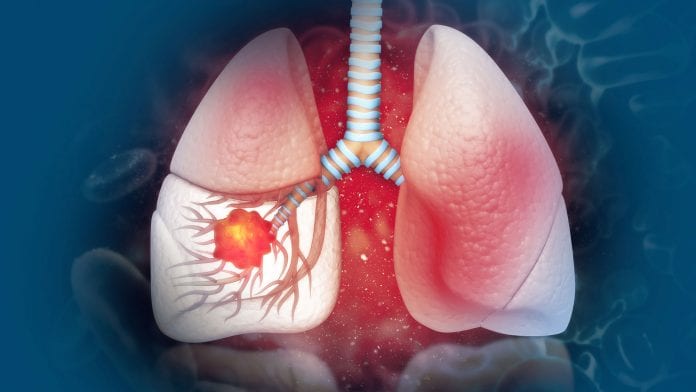
A lung cancer trial, aiming to detect disease in higher risk patients before they show symptoms, has caught dozens of cases early.
The Leeds Lung Health Check, with the involvement of 73 GP Surgeries, has screened 5,600 people since its launch in November 2018. These screenings have resulted in more than 100 cases of lung cancer being detected early.
Lung cancer is the most common cancer in Yorkshire, and is unfortunately, often diagnosed at a late stage, meaning the treatment options are more limited and the survival rates are lower. However, as a result of the screenings, patients diagnosed in the early stages were able to receive surgery and curative radiotherapy.
The multimillion pound lung cancer trial is a partnership between University of Leeds, Leeds Teaching Hospitals NHS Trust and Leeds City Council, and is funded by Yorkshire Cancer Research.
It aims to test screening in community settings and provide information to improve the effectiveness and benefit of future lung screening programmes. Appointments have been taking place in a mobile unit, travelling across Leeds in locations such as supermarkets and shopping centre carparks. The mobility of the screenings has meant it is easier for people to take part.
After introducing COVID-secure measures, including social distancing and personal protective equipment, the research team was the first lung health check service in the UK to return to normal service and continue making appointments for the life-saving lung cancer detection screenings.
The service is continuing as normal through the current national restrictions in England, and members of the public are being urged to attend appointments if invited, as medical services are an exception to the ‘stay at home’ guidelines.
Richard Neal, Professor of Primary Care Oncology at Leeds and a GP in the city, said: “This is a unique collaboration between the University of Leeds and Leeds Teaching Hospitals Trust, and is a flagship study for the city and the region. It has the potential to benefit very many people in Leeds and beyond, into the future”.
Dr Phil Wood, Leeds Teaching Hospitals NHS Trust Chief Medical Officer, said: “This is a really important study which addresses some crucial questions about the effectiveness of screening but also helps to address underlying issues of equality by working in areas of relative deprivation across Leeds”.






















